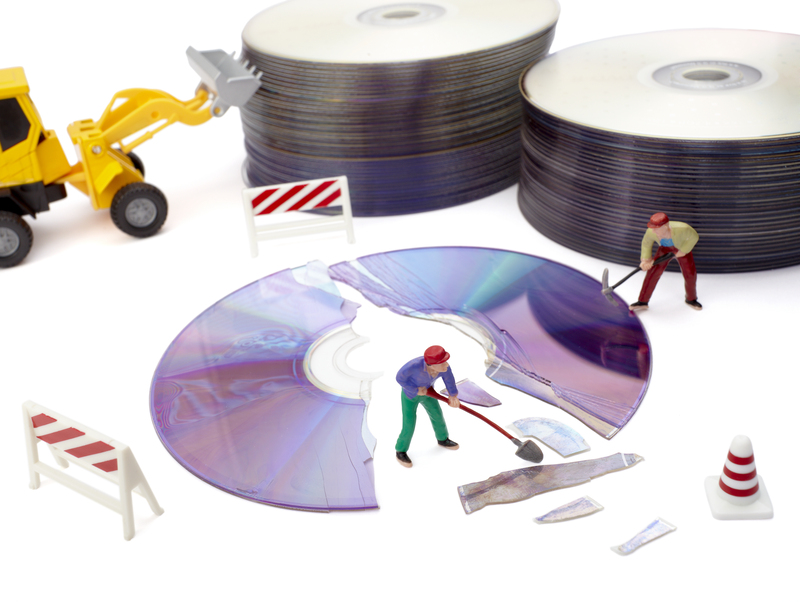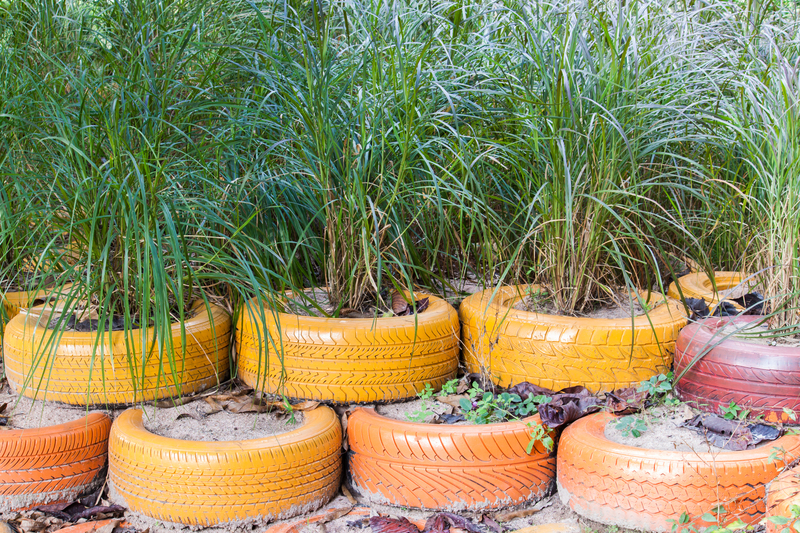The Cheapest Ways to Get Rid of Bulky Household Waste
Dealing with bulky household waste can be a daunting and expensive task. Old sofas, broken furniture, mattresses, or unwanted appliances can take up valuable space and pose challenges to responsible disposal. However, many frugal and environmentally friendly methods exist for getting rid of large household items without breaking the bank.
In this comprehensive guide, we'll explore the cheapest ways to dispose of bulky household waste. We'll cover cost-effective removal options, recycling and repurposing tips, donation ideas, community connections, and more. Whether you're decluttering your home, renovating, or simply need to clear out space, you'll discover practical solutions to handle large waste items affordably and responsibly.

Understanding Bulky Household Waste
Bulky household waste--also referred to as large waste items, bulky rubbish, or oversized refuse--is any residential garbage that is too large or heavy to fit in regular waste bins. This type of waste typically includes:
- Old furniture (sofas, chairs, tables, dressers)
- Mattresses and bed frames
- White goods (refrigerators, washing machines, ovens)
- Large toys and play equipment
- Carpets, rugs, and large textiles
- Broken bicycles, lawn mowers, and garden equipment
- Large boxes or packaging materials
These items present unique challenges because of their size, weight, and potential for containing hazardous materials (such as refrigerants in appliances). Improper disposal can not only cost you money in fines but also harm the environment.
Free and Low-Cost Bulky Waste Disposal Options
When it comes to the cheapest ways to get rid of bulky household waste, it's best to start with free options before considering paid services. Here are some of the most effective and affordable methods:
1. Curbside Bulk Waste Collection
Many local councils or municipalities offer free or low-cost curbside collection of bulky waste. The rules vary widely, but typically:
- You can schedule a pick-up or set out items during designated collection weeks.
- A limited number of large items is accepted per collection.
- Some materials may be restricted (e.g., electronics, hazardous waste).
Pro Tip: Check your local council's website or contact municipal services for bulky waste pick-up schedules and eligibility requirements. This option is usually the most economical way to dispose of heavy furniture, mattresses, or appliances.
2. Reuse and Donation
If your bulky items are in usable condition, consider donating them. This is an environmentally conscious and cost-free alternative. Many charities and social enterprises will collect:
- Gently used furniture
- Working appliances
- Bedding and mattresses
Popular organizations for donation include:
- Salvation Army
- Habitat for Humanity ReStores
- Local shelters and thrift stores
- Community centers and churches
Bonus: Donations are tax-deductible in many cases, and you'll be helping someone in need while clearing your home.
3. Give Away or Sell Online
The digital age offers numerous platforms for giving away, swapping, or selling bulky household items for free or profit:
- Freecycle and Trash Nothing: Post unwanted items for neighbors to collect.
- Facebook Marketplace and Craigslist: List items for sale or "curb alert."
- Nextdoor: Offer to your local community for free pick-up.
Tip: Clearly state dimensions and condition, and arrange for contactless pick-up. You'd be surprised how quickly someone may want your old couch or fridge--saving you disposal costs entirely.
4. Take it to the Local Tip or Recycling Center
Most towns and cities operate public waste tips (dump sites) or recycling centres where you can dispose of large household waste.
- Some centers accept household waste free of charge, especially for residents.
- Sorted items (like scrap metal or wood) may be recycled at no cost.
- Charges, if any, are typically much less than private junk removal.
Note: Bring proof of address and check if certain items (like large appliances or mattresses) require advance notice or fees.
5. Community Clean-Up Events
Many municipalities host periodic "spring clean" or "bulky item drop-off" days, where large household waste can be discarded for free or at a subsidized rate. These events encourage community participation and reduce illegal dumping.
6. Repurposing and Upcycling
With a bit of creativity, you might avoid disposal entirely by upcycling old furniture or appliances:
- Turn a dresser into a bookshelf or TV stand.
- Use pallet wood for garden projects.
- Convert old mattresses into pet beds or insulation.
Upcycling is not only cheap but also fun and environmentally friendly!
How to Avoid High Costs When Disposing of Bulky Waste
Some disposal methods are far more expensive than others. Here are practical tips for keeping your costs to an absolute minimum:
- Avoid illegal dumping and fly-tipping. Fines can be significant and disposal is traceable in many places.
- Separate waste by type--metal, wood, textiles, electronics--to use recycling facilities that may charge less (or nothing) for sorted loads.
- Enquire about "pay by item" or "pay by weight" options at your local tip instead of hiring a van or skip (dumpster).
- Share disposal costs with neighbors--hire a skip collectively or coordinate trips to the dump.
- Break down items as much as possible to save space and potentially reduce disposal charges.
- Contact local second-hand shops or repair cafes before throwing items away.
When Is Paid Bulky Waste Collection Worth It?
Sometimes, the only viable option may be hiring a junk removal company or skip hire. Here's when paid disposal makes sense:
- You have no way to transport large items.
- You're pressed for time or need many heavy items removed quickly.
- Items are hazardous or regulated (e.g., refrigerators, e-waste).
To save money when using professional bulky waste disposal services:
- Obtain multiple quotes and compare local companies.
- Ask about discounts for curb-side placement (reducing labor costs).
- Combine items with neighbors for a group rate.
Bulky Waste: Recycling and Environmental Considerations
One of the cheapest and most eco-friendly ways to dispose of bulky waste is through recycling. Many components in furniture and appliances can be reused, recovering valuable materials and reducing landfill:
- Metal frames, springs, and parts can go to scrap yards or metal recycling
- Wood and chipboard from furniture may be accepted at recycling points
- Mattresses are increasingly recycled by specialist programs
- White goods (fridges, washers, ovens) can be recycled for metal and plastic
Check with your local recycling center for accepted items and any tips for processing furniture or appliances on site.
How to Find Free Recycling Centers Near You
- Use search engines with queries like "free bulky waste disposal near me" or "local recycling center for large items."
- Visit your municipal or county website for center addresses and opening hours.
- Some centers partner with charities and will arrange for free pickup of reusable items.

Frequently Asked Questions
What is the cheapest way to dispose of a mattress or old sofa?
The most affordable options are usually:
- Municipal bulky waste pick-up
- Drop-off at a public dump or recycling center
- Charity donation if the item is in good condition
Always check first if your local council offers free mattress or sofa disposal before paying for private collection.
Can I leave bulky waste on the curb for free?
Only if it's scheduled for municipal collection. Outside of designated days, leaving large waste on the street can result in fines for illegal dumping. Always check local regulations.
Are there any free government programs for bulky item disposal?
Yes, some cities offer free or subsidized bulky waste removal for seniors, people with disabilities, or low-income families. Contact your council for eligibility requirements.
How can I avoid hidden costs in bulky waste removal?
- Get written confirmation of all fees before using paid services.
- Ask if there are surcharges for stairs, distance to curb, or after-hours collection.
- Properly prepare your items; disassemble if possible to save on space and labor costs.
Do recycling centers accept all types of furniture and appliances?
Most centers accept standard items, but hazardous materials, electronics, and mattresses may have specific guidelines. Call ahead or check online for accepted items.
Conclusion: Save Money and the Planet When Disposing Bulky Waste
Getting rid of large household waste doesn't have to be expensive. By taking advantage of free or subsidized municipal services, exploring reuse and donation opportunities, leveraging online platforms, and using recycling centers, you can clear your space without clearing out your bank account.
Whenever possible, prioritize donation, reuse, and recycling--these cheapest ways to get rid of bulky household items are not just easy on your wallet; they also help reduce environmental impact.
Remember: Research your local options, prepare your items, and don't hesitate to ask about community programs. With the strategies in this article, you'll save money, help neighbors, and contribute to a cleaner world--all while making your home clutter-free.
Have questions or a tip for affordable bulky waste disposal? Leave a comment below!